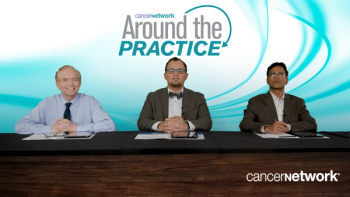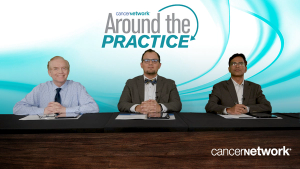
The discussion shares key takeaways and practical insights for optimizing the referral and treatment process for CAR T-cell and bispecific therapies.

Your AI-Trained Oncology Knowledge Connection!


The discussion shares key takeaways and practical insights for optimizing the referral and treatment process for CAR T-cell and bispecific therapies.

The discussion focuses on protocols for monitoring long-term complications from CAR T-cell and bispecific therapies, improving patient reintegration into community care posttreatment, and enhancing communication between academic and community oncologists.

The discussion examines whether the CAR T-cell referral process differs for in-state vs out-of-state patients, the role of social factors, and any changes or challenges in the referral process following recent CAR T approvals.

Medical experts discuss the CAR T-cell therapy referral process between community and academic centers, how academic centers can aid community oncologists in identifying eligible patients, determining suitable referrals, and managing patient expectations.

Medical experts discuss how adverse events vary by bispecific class, the specific adverse events observed in practice, and their management strategies.

Medical experts explore common types of referrals, compare in-state vs out-of-state processes, and examine the impact of social factors on the referral process.

Medical experts examine differences and similarities in the referral process and treatment protocols for non–BCMA-targeted vs BCMA-targeted bispecific therapies, including aspects like step-up dosing and premedication.

Medical experts address the referral process for bispecific therapy between community and academic centers, including patient eligibility and educational requirements such as REMS certification.

Medical experts discuss streamlining referrals to reduce treatment delays, optimizing resources, comparing outcomes in collaborative vs noncollaborative settings, and managing patient reluctance about academic center referrals.v

Medical experts highlight the critical role of collaboration between academic and community physicians in managing multiple myeloma, focusing on coordinating care, maintaining communication, and ensuring centers are prepared for patient transitions.

Published: September 6th 2024 | Updated:

Published: October 4th 2024 | Updated:

Published: October 4th 2024 | Updated:

Published: September 6th 2024 | Updated: